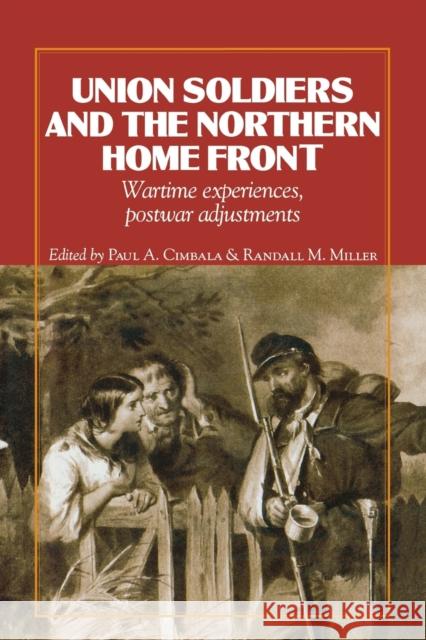Union Soldiers and the Northern Home Front: Wartime Experiences, Postwar Adjustments » książka
Union Soldiers and the Northern Home Front: Wartime Experiences, Postwar Adjustments
ISBN-13: 9780823221455 / Angielski / Twarda / 2002 / 508 str.
Union Soldiers and the Northern Home Front: Wartime Experiences, Postwar Adjustments
ISBN-13: 9780823221455 / Angielski / Twarda / 2002 / 508 str.
(netto: 368,50 VAT: 5%)
Najniższa cena z 30 dni: 381,40
ok. 30 dni roboczych.
Darmowa dostawa!
Union Soldiers and the Northern Home Front: Wartime Experiences, Postwar Adjustments explores the North's Civil War in ways that brings fresh perspectives to our knowledge of the way soldiers and civilians interacted in the Civil War North. Northerners rarely confronted the hardships their southern counterparts faced, but they still found the war a challenging event that to varying degrees would re-shape and transform their old comfortable assumptions about their lives. Having given up their sons to save the Union, they craved information and followed the progress of the companies and regiments that they had sent off to fight. At the same time, their soldier boys never fully severed their ties with home, even as the rigors of war made them rougher versions of their old selves. The home front and the front lines remained intimately connected. This book expands our understanding of those connections. The authors of the essays in this volume bring new and different approaches to some familiar topics while offering answers to some questions that other scholars have ignored for too long. They explore such varied experiences as recruitment, soldiers' motivation, civilian access to the combat experience, wartime correspondence, benevolence and organized relief, race relations, definitions of freedom and citizenship, and ways civilians interacted with soldiers who sojourned in their communities. It is important that they do not stop with the end of the fighting, but also explore such postwar problems as the reintegration of soldiers into northern life and the claims to public memory, including those made by African Americans. Taken as a whole, the essays in Union Soldiers and the Northern Home Front provide a better understanding of the larger scope and depth of wartime events experienced by both civilians and soldiers and of the ways those events nurtured the enduring connections between those who fought and those who remained at home. In that regard, the essays go to the very heart of the Civil War experience.











